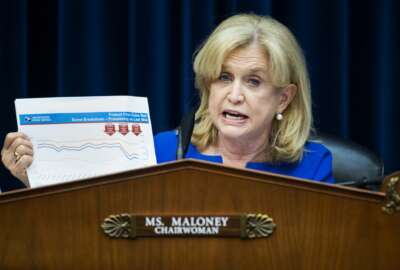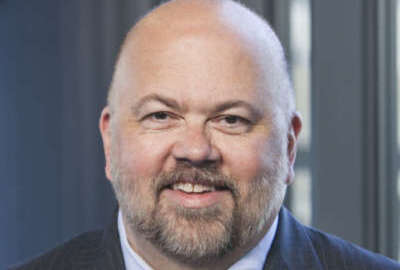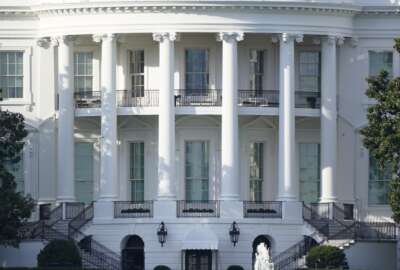
Life in the not-so-fast F-lane
Depending on how things go, career federal workers will have either a couple of days at most — or maybe at least the next four years — to worry about possible...
Depending on how things go, career federal workers will have either a couple of days at most — or maybe at least the next four years — to worry about possible changes in their job security. Changes, such as being assigned to the proposed new Schedule F job category where it would have/or will be much easier to discipline or fire long time employees even if they previously had been part of the career civil service and all its job protections.
President Trump last week shocked the Washington D.C. establishment by issuing an executive order dealing with job security for career feds. It creates another politically-oriented “excepted service” for certain categories of federal employees who now enjoy civil service protection. The new F-class of excepted service employees — like those political appointees in Schedule C — could be fired at will. Some believe the current job security rules protect career civil servants from being forced to carry out political actions. Others think those rules sometimes stand in the way elected officials carrying out the will of the people who put them in power.
Currently most civil servants (after finishing a satisfactory probationary period) can be fired for a variety of reasons. But most also have appeal rights and other channels which discourage many bosses from actually firing employees. The vast majority of federal workers would remain outside the new Schedule F. At least for now
There are probably lots of people out there — maybe including some long-time, long- career civil servants — who think a think maybe the bureaucracy could use a jolt like this. And that it sometimes has its own agenda.
News of the new Schedule F rules sent shock waves through official and bureaucratic Washington D.C. Both The Washington Post and The New York Times reacted with shock and horror. They predicted an erosion and possible end of the century-old civil service system, and a return to a spoils system based on politics and political policies rather than just appointing friends, relatives and party hacks to good-paying government jobs. But outside official Washington D.C. and inside the government service, to some extent, there are people who think feds need to be held more accountable and be more responsive to elected officials like the president.
Many worry that a new Schedule F process could be used to get get scientists and statisticians at places like the CDC and the FDA to either shape up — and toe the administration line on COVID treatments and policies — or ship out. It could also be applied at the FBI, CIA, EPA and other places where political appointees have complained that career employees refuse to get with the program. Or work against it, violating civil service rules and standards in the other direction.
For years politicians from both parties have accused — and also used or attempted to use — people at the FBI, the IRS and other heavyweight operations for their purposes. Only to express horror when the other side is caught doing or is accused of doing the same things. Often they have an e-mail trail to prove their point.
Federal unions, as is their duty and function, have blasted the new EO. They point out that it could gut the career civil service by removing the protections career feds have to carry out their jobs even if that appears to political bosses to be wrong. The long-time chairman of the Federal Salary Council resigned as a matter of conscience. While not a household word outside of Washington, the FSC is high profile in government. And the former chairman Ron Sanders, a life long Republican, is highly respected for decades of career service in government under three Republican and three Democratic presidents.
Many are speculating what the new Schedule F, when and if it gets off the ground, will mean to government workers and policies.
During the 1960s, a very brave, and stubborn, career federal worker — Dr. Frances Kelsey — was under very heavy pressure to approve a drug to help pregnant women with morning sickness. The drug, Thalidomide, had been approved for use in dozens of countries. Including her native Canada. Lots of people wanted to get on the huge U.S. market ASAP. Despite tremendous pressure from drug companies and politicians — as well as many citizens — she blocked it on grounds it hadn’t been sufficiently tested. Her bosses made the civil servants life very uncomfortable. Major pressure on her to green light the drug for U.S. distribution or get out. But pesky civil service rules plus investigative stories from the Washington Post came to her rescue. The drug remains blocked from the U.S., although a few people have smuggled it in. Overseas it was responsible for thousands of children who were born without arms or legs because it was rushed to approval. But not here because of one stubborn bureaucrat with guts. And a safety net to back her up.
Makes you wonder where Dr. Anthony Fauci would be working today — or not working — if Schedule F had been in place this year?
Nearly Useless Factoid
By Alazar Moges
Santa Claus once appeared on official pieces of legal Unites States currency. He appeared on $20, $5 and $2 notes. Prior to 1861, banks could issue their own notes that were redeemable for their value in gold—a practice due to the “gold standard” that the American economy was based on.
Source: Ripley’s
Copyright © 2025 Federal News Network. All rights reserved. This website is not intended for users located within the European Economic Area.
Mike Causey is senior correspondent for Federal News Network and writes his daily Federal Report column on federal employees’ pay, benefits and retirement.
Follow @mcauseyWFED








